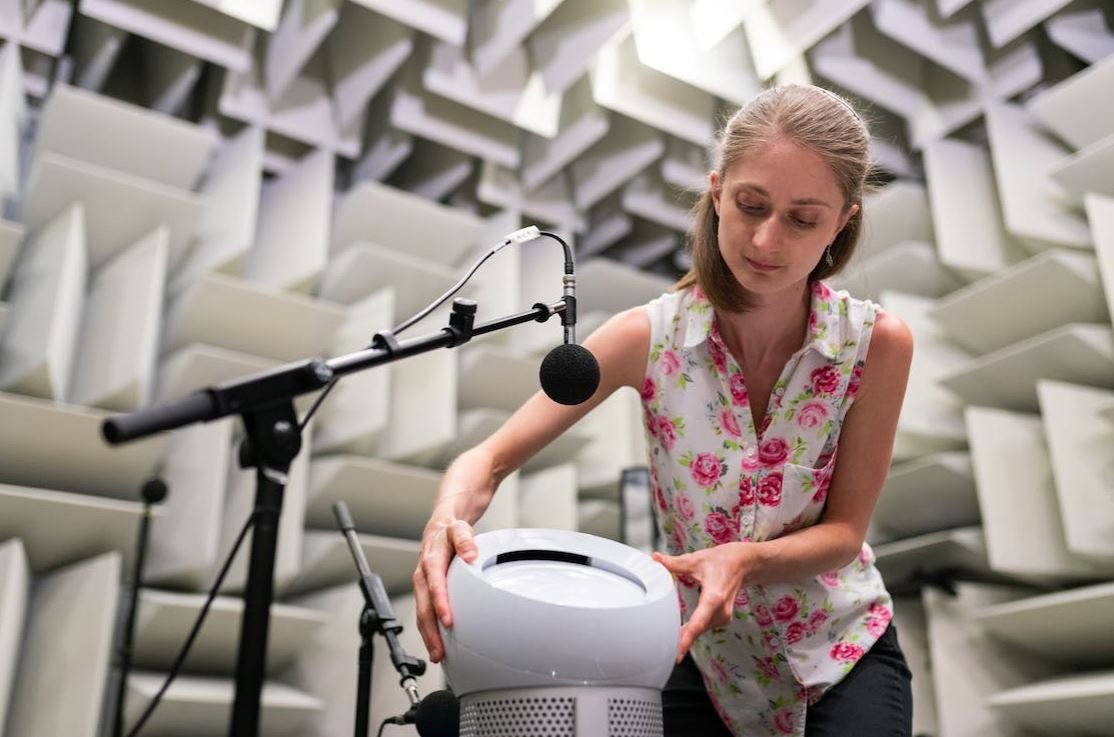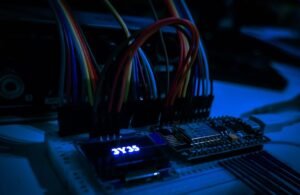Artificial Intelligence Applications Definition
Artificial Intelligence (AI) refers to the simulation of human intelligence in machines that are programmed to think and learn like humans. The goal of AI is to create systems that can perform tasks that would typically require human intelligence. These applications can range from simple automation to complex decision-making processes.
Key Takeaways:
- Artificial Intelligence (AI) simulates human intelligence in machines.
- AI applications vary in complexity, ranging from automation to decision-making processes.
- AI has the potential to revolutionize various industries and improve efficiency.
**AI technology** has been rapidly evolving over the years, with numerous applications emerging across various industries. AI applications can be categorized into **narrow AI** and **general AI**. Narrow AI refers to systems designed for specific tasks, such as voice recognition or image classification. On the other hand, general AI aims to possess human-level intelligence and the ability to perform any cognitive task. However, general AI is still a theoretical concept and hasn’t been achieved yet.
AI is utilized in numerous sectors, including **healthcare**, **finance**, **transportation**, **manufacturing**, and **customer service**. In healthcare, AI is used for **diagnostic purposes**, **personalized medicine**, and **drug discovery**. AI can help financial institutions with **fraud detection**, **risk assessment**, and **algorithmic trading**. In transportation, AI can optimize **route planning** and improve **vehicle autonomy**. Manufacturing processes can be enhanced through **predictive maintenance** and **quality control** systems powered by AI. Customer service can benefit from AI-powered **chatbots** and **virtual assistants** that provide immediate assistance to customers.
*AI advancements* have led to the development of **machine learning** and **deep learning** algorithms. Machine learning involves training the AI system on data to make predictions or take actions without explicitly programming it for specific tasks. Deep learning, a subset of machine learning, relies on artificial neural networks to simulate the functioning of a human brain. This allows AI systems to recognize patterns, process complex data, and make decisions based on extensive training.
| Industry | AI Application |
|---|---|
| Healthcare | Diagnostic assistance using AI algorithms. |
| Finance | Fraud detection and risk assessment. |
AI applications heavily rely on **big data**, as large amounts of data are needed to train and improve AI algorithms. These algorithms can process and analyze vast datasets to uncover valuable insights and patterns. With the advent of **Internet of Things (IoT)**, AI can leverage the data generated by connected devices to provide real-time analysis and decision-making.
AI has the potential to revolutionize various industries in terms of efficiency and capabilities. It can automate mundane and repetitive tasks, reducing human error and freeing up time for more complex activities. AI can also enable **personalization**, allowing businesses to tailor their products and services to individual customers. Furthermore, **predictive analytics** powered by AI algorithms can help companies make data-driven decisions and anticipate customer needs.
| Industry | AI Application |
|---|---|
| Transportation | Route optimization and autonomous vehicles. |
| Manufacturing | Predictive maintenance and quality control. |
It is important to note that AI technology also presents challenges and ethical considerations. Issues such as **job displacement**, **data privacy**, and **bias in algorithms** need to be addressed. Job displacement may occur as AI systems automate tasks traditionally performed by humans. Data privacy concerns arise as AI requires access to large amounts of data, raising questions about consent and security. Bias in algorithms can occur if the training data reflects existing biases or if algorithms make discriminatory assumptions.
*AI will continue to evolve and expand*, with more applications emerging as technology advances. As AI becomes more integrated into our daily lives, it is crucial to ensure responsible deployment and regulation to harness its benefits while minimizing potential risks. AI has the potential to reshape industries and redefine human-machine interactions, paving the way for a future where intelligent systems enhance our capabilities and improve society as a whole.
References:
- “Artificial intelligence: What is it and why does it matter?” – MIT Technology Review
- “How AI is changing the world” – World Economic Forum
- “How AI can revolutionize industry” – McKinsey & Company
Resources:
- MIT Technology Review: What is Artificial Intelligence? (Article)
- World Economic Forum: How AI is changing the world (Article)
- McKinsey & Company: How AI can revolutionize industry (Article)

Common Misconceptions
Misconception 1: Artificial intelligence (AI) means human-like robots
Many people mistakenly believe that AI refers to robots that look and act like humans. However, AI is a broader concept that encompasses technologies and systems designed to perform tasks that would typically require human intelligence. While humanoid robots are one application of AI, there are many others.
- AI can also be applied in software systems that process and interpret large amounts of data.
- AI is commonly used in virtual personal assistants like Siri or Alexa.
- AI powers recommendation engines that suggest products or content based on user preferences.
Misconception 2: AI will replace humans in the workforce
Another common misconception is the fear that AI will automate jobs and render humans obsolete. While it is true that AI can automate certain tasks, it is more likely to augment human capabilities rather than replace them entirely. AI is best suited for repetitive tasks, data analysis, and decision-making support.
- AI can help doctors in diagnosing diseases by analyzing medical images and patient data.
- AI can assist customer service representatives by providing instant answers to frequently asked questions.
- AI can automate routine administrative tasks, allowing employees to focus on more strategic and creative work.
Misconception 3: AI is infallible and completely unbiased
Many people assume that AI algorithms are objective and devoid of biases. However, AI systems are only as good as the data they are trained on. If the training data contains biases or reflects societal prejudices, the AI system can amplify those biases. Additionally, AI algorithms can make mistakes or fail to perform as intended, just like any other technology.
- AI-powered recruiting tools might inadvertently discriminate against certain demographic groups if the training data is biased.
- AI facial recognition systems have been shown to have higher error rates for people with darker skin tones.
- AI language models can produce biased and offensive output if they are trained on data with offensive language or biases.
Misconception 4: AI is a recent development
While AI has gained significant attention and advancements in recent years, it is not a new concept. AI research and applications have been around for several decades. The field of AI has seen cycles of hype and progress, with periods of intense research followed by periods of decreased interest and funding.
- The term “artificial intelligence” was coined in 1956, marking the birth of the field.
- AI technologies like expert systems and natural language processing were developed in the 1980s and 1990s.
- Recent breakthroughs in machine learning and neural networks have fueled the recent resurgence of AI.
Misconception 5: AI is only for tech-savvy companies and industries
Many believe that AI is limited to tech companies or high-tech industries. However, AI has applications across various sectors, and companies of all sizes can benefit from AI technologies. AI is becoming increasingly accessible through cloud-based services, libraries, and frameworks, enabling businesses to integrate AI into their operations more easily.
- AI can help retailers optimize inventory management and personalize customer recommendations.
- AI is used in agriculture for crop monitoring, food sorting, and yield prediction.
- AI can enhance cybersecurity by detecting and mitigating cyber threats in real-time.

Applications of Artificial Intelligence in Healthcare
Artificial Intelligence (AI) has revolutionized the healthcare industry, improving diagnostics, treatment plans, and patient outcomes. This table highlights some remarkable applications of AI in healthcare.
| AI Application | Description |
|---|---|
| Cancer Diagnosis | AI algorithms analyze medical images to detect cancerous cells with greater accuracy than human experts. |
| Virtual Nursing Assistants | AI-powered chatbots provide patients with round-the-clock support, answering questions and monitoring symptoms. |
| Drug Discovery | AI analyzes vast amounts of data to identify potential drug candidates, reducing the time and cost of development. |
| Personalized Medicine | AI algorithms analyze an individual’s genetic makeup to customize treatment plans and medications. |
| Medical Data Analysis | AI systems can mine electronic health records to identify patterns and predict disease onset. |
AI Applications in Sales and Marketing
Artificial Intelligence plays a vital role in enhancing sales and marketing strategies, improving customer engagement and conversions. Explore some fascinating applications of AI in this field.
| AI Application | Description |
|---|---|
| Chatbot Customer Support | AI-powered chatbots assist customers with product inquiries, troubleshooting, and offer personalized recommendations. |
| Predictive Lead Scoring | AI algorithms analyze customer data to prioritize leads based on likelihood to convert, improving sales team efficiency. |
| Dynamic Pricing | AI adjusts prices in real time based on demand, competitor pricing, and customer behavior, maximizing revenue. |
| Sentiment Analysis | AI algorithms analyze online feedback and social media posts to gauge customer sentiment and tailor marketing campaigns accordingly. |
| Recommendation Systems | AI algorithms analyze customer preferences and behavior to provide personalized product recommendations, enhancing cross-selling opportunities. |
AI Applications in Autonomous Vehicles
The advent of AI has paved the way for the development of autonomous vehicles, transforming transportation as we know it. Discover noteworthy applications of AI in autonomous vehicles.
| AI Application | Description |
|---|---|
| Self-Driving Cars | AI algorithms process sensor data to navigate and control vehicles, eliminating the need for human drivers. |
| Traffic Analysis | AI cameras and sensors monitor traffic patterns, optimizing routes, reducing congestion, and improving safety. |
| Pedestrian Detection | AI algorithms detect pedestrians and objects, enabling vehicles to respond and avoid collisions. |
| Smart Parking | AI sensors and systems guide vehicles to available parking spots, reducing the time spent searching for parking. |
| Driver Behavior Analysis | AI algorithms monitor driver behavior and detect signs of fatigue or distraction, alerting the driver or taking control if necessary. |
AI Applications in Finance and Banking
Artificial Intelligence has brought significant advancements to the finance and banking sectors, streamlining operations and enhancing fraud prevention. Here are some intriguing applications of AI in finance.
| AI Application | Description |
|---|---|
| Fraud Detection | AI systems analyze large volumes of financial data to identify suspicious transactions and patterns, preventing fraud. |
| Algorithmic Trading | AI algorithms execute trades based on market analysis, exploiting opportunities that human traders may miss. |
| Customer Service | AI-powered chatbots handle routine inquiries, assist with banking transactions, and offer financial advice. |
| Risk Assessment | AI models evaluate creditworthiness, predicting loan defaults and helping financial institutions make informed lending decisions. |
| Financial Planning | AI systems analyze customer financial data and goals to offer personalized investment strategies and recommendations. |
AI Applications in E-commerce
E-commerce has greatly benefited from the integration of artificial intelligence technologies, enhancing customer experience and optimizing operations. Discover some intriguing AI applications in the realm of e-commerce.
| AI Application | Description |
|---|---|
| Visual Search | AI algorithms analyze images to enable users to search for products based on pictures rather than text. |
| Personalized Product Recommendations | AI algorithms analyze user behavior and preferences to suggest products tailored to individual tastes, increasing conversion rates. |
| Inventory Management | AI systems predict demand and optimize inventory levels, ensuring products are available when customers need them. |
| Chatbot Customer Support | AI-powered chatbots provide instantaneous assistance, answering customer queries and resolving issues 24/7. |
| Dynamic Pricing Optimization | AI adjusts prices in real time based on factors like demand, competitor pricing, and customer behavior, maximizing profitability. |
AI Applications in Education
Artificial Intelligence has had a profound impact on education, augmenting traditional teaching methods and driving personalized learning. Explore some exciting AI applications in the field of education.
| AI Application | Description |
|---|---|
| Intelligent Tutoring Systems | AI-powered tutors provide personalized instruction, adapting lessons to individual student needs and learning styles. |
| Automated Grading | AI algorithms can evaluate student assignments and exams, providing timely feedback and reducing teacher workload. |
| Virtual Reality in Education | AI-powered virtual reality experiences enhance student engagement and offer immersive learning opportunities. |
| Smart Content Recommendation | AI algorithms suggest educational resources and materials tailored to each student’s learning goals and abilities. |
| Language Learning Platforms | AI-powered language learning software provides personalized instruction, adapting lessons to individual proficiency levels. |
AI Applications in Manufacturing
Artificial Intelligence has revolutionized the manufacturing industry, enabling automation, increasing productivity, and improving quality control. Explore remarkable AI applications in the manufacturing sector.
| AI Application | Description |
|---|---|
| Robotics and Automation | AI-powered robots automate repetitive tasks, reducing production time, improving efficiency, and ensuring precision. |
| Quality Control | AI systems analyze sensor data and perform real-time inspection to identify defects and ensure superior product quality. |
| Predictive Maintenance | AI algorithms predict equipment failures, enabling proactive maintenance to prevent costly production disruptions. |
| Supply Chain Optimization | AI models analyze data to optimize inventory levels, maximize efficiency, and minimize supply chain disruptions. |
| Energy Management | AI systems optimize energy consumption in factories, reducing costs and minimizing environmental impact. |
AI Applications in Agriculture
Artificial Intelligence has the potential to revolutionize agriculture, increasing crop yields, optimizing resource allocation, and mitigating environmental impact. Discover some intriguing AI applications in agriculture.
| AI Application | Description |
|---|---|
| Precision Farming | AI-enabled sensors and drones monitor crop health, soil conditions, and weather patterns, optimizing farming practices. |
| Pest and Disease Management | AI models detect early signs of pests and diseases, enabling prompt intervention to minimize crop damage. |
| Crop Yield Prediction | AI algorithms analyze historical data and environmental factors to predict crop yields, aiding in efficient resource allocation and planning. |
| Automated Irrigation Systems | AI systems optimize irrigation schedules based on soil moisture and weather data, conserving water and ensuring optimal plant growth. |
| Autonomous Farm Vehicles | AI-powered autonomous vehicles perform tasks like planting seeds, harvesting crops, and applying fertilizers with precision and efficiency. |
AI Applications in Energy Systems
Artificial Intelligence is transforming the energy sector, optimizing power generation, improving grid management, and advancing renewable energy technologies. Delve into captivating AI applications in the energy sector.
| AI Application | Description |
|---|---|
| Smart Grid Management | AI algorithms optimize electricity distribution, balance supply and demand, and predict equipment failures for improved grid performance. |
| Renewable Energy Forecasting | AI models analyze weather and historical data to forecast renewable energy generation, enabling efficient integration into the power grid. |
| Energy Consumption Optimization | AI systems analyze usage patterns to optimize energy consumption in buildings, reducing waste and lowering costs. |
| Fault Detection in Power Systems | AI algorithms detect and diagnose faults in power systems, aiding in rapid identification and restoration of power supply. |
| Grid Stability Monitoring | AI models monitor grid stability in real time, ensuring consistent and reliable delivery of electricity. |
AI Applications in Environmental Conservation
Artificial Intelligence plays a crucial role in preserving our environment, facilitating conservation efforts, and addressing pressing environmental challenges. Discover fascinating AI applications in environmental conservation.
| AI Application | Description |
|---|---|
| Wildlife Monitoring | AI models analyze camera trap images and acoustic data for species identification and monitoring population trends. |
| Illegal Logging Detection | AI algorithms analyze satellite imagery to detect logging activities in protected forests, enabling rapid intervention. |
| Water Management | AI systems analyze water usage data and weather forecasts to optimize irrigation, conserve water, and prevent water pollution. |
| Air Quality Analysis | AI algorithms process air quality data from sensors to assess pollution levels and aid in pollution prevention measures. |
| Ocean Conservation | AI models analyze satellite data to monitor coral reefs, detect plastic pollution, and assess the impact of climate change on marine ecosystems. |
The potential of Artificial Intelligence is vast and rapidly expanding. From healthcare to manufacturing, finance to education, and beyond, AI has transformative impacts across diverse industries. As AI continues to advance, it presents incredible opportunities for innovation, efficiency, and solving complex problems. Embracing AI can unlock tremendous potential and shape a better future.
Frequently Asked Questions
What is artificial intelligence (AI)?
Artificial intelligence refers to the development of computer systems that can perform tasks that would typically require human intelligence, such as learning, problem-solving, perception, and language understanding.
What are some common applications of artificial intelligence?
Common applications of artificial intelligence include virtual assistants, chatbots, recommendation systems, fraud detection, natural language processing, image recognition, autonomous vehicles, and medical diagnosis.
How does artificial intelligence work?
Artificial intelligence systems typically rely on algorithms, machine learning techniques, and large datasets to process and analyze information. These systems use pattern recognition and decision-making algorithms to make informed predictions or take actions.
What are the benefits of using artificial intelligence?
The use of artificial intelligence can provide numerous benefits, including improved efficiency, accuracy, and productivity in various industries. AI applications can automate tasks, enhance decision-making processes, reduce human error, and enable businesses to gain insights from large amounts of data.
Are there any risks associated with artificial intelligence?
While artificial intelligence offers significant advantages, there are also risks involved. AI systems can be vulnerable to biased decision-making, security threats, and ethical concerns. Additionally, the potential displacement of human jobs is a concern in certain industries.
How is artificial intelligence different from machine learning?
Artificial intelligence is a broader field that encompasses the development of systems capable of intelligent behavior. Machine learning, on the other hand, is a subset of artificial intelligence that focuses on algorithms that can automatically learn and improve from experience without being explicitly programmed.
Can artificial intelligence replace human intelligence?
No, artificial intelligence cannot fully replace human intelligence. While AI systems can perform specific tasks with remarkable accuracy, they lack the comprehensive understanding, general knowledge, and creativity exhibited by human intelligence.
What are the challenges in implementing artificial intelligence?
Some challenges in implementing artificial intelligence include the lack of quality training data, the need for skilled AI professionals, ethical considerations regarding privacy and transparency, regulatory requirements, and the cost of technology adoption.
Will artificial intelligence eliminate jobs?
While artificial intelligence may automate certain tasks, it does not necessarily mean the elimination of jobs. AI has the potential to transform job roles, requiring humans to upskill and adapt to new responsibilities. Additionally, AI can create new job opportunities, particularly in the development and maintenance of AI systems.
How will artificial intelligence impact society in the future?
Artificial intelligence is likely to have a significant impact on various aspects of society. It can revolutionize healthcare, transportation, education, customer service, and many other sectors. However, it is crucial to ensure responsible development and implementation of AI to address potential challenges and ensure equitable benefits for all.





